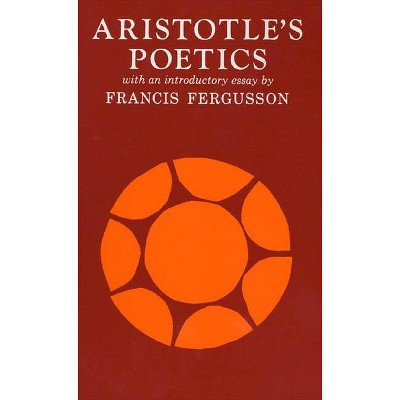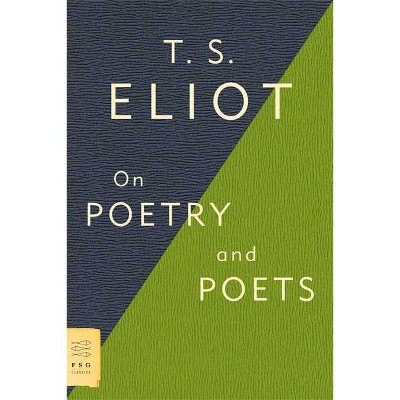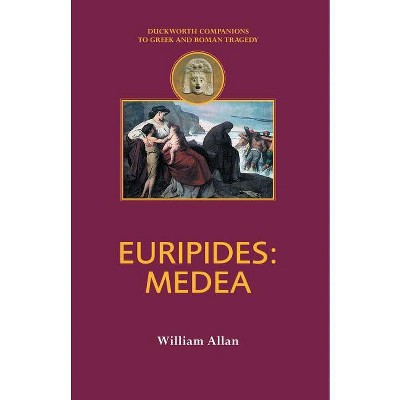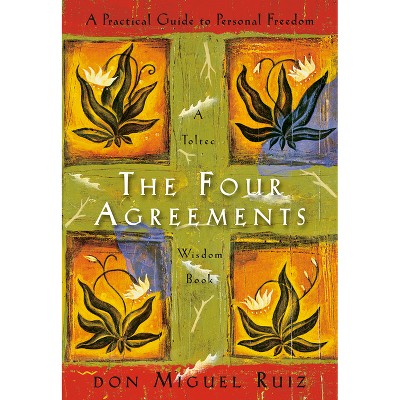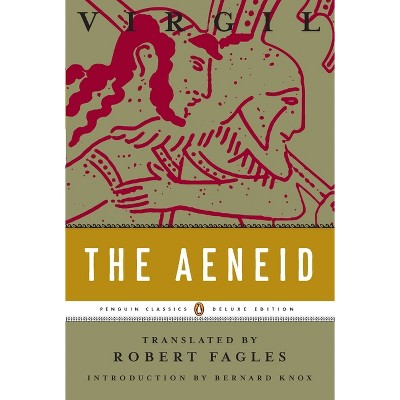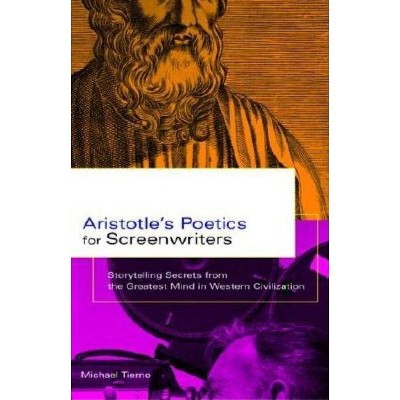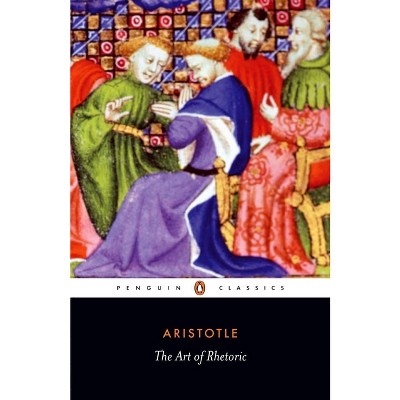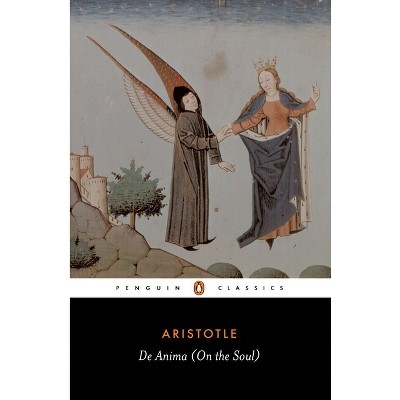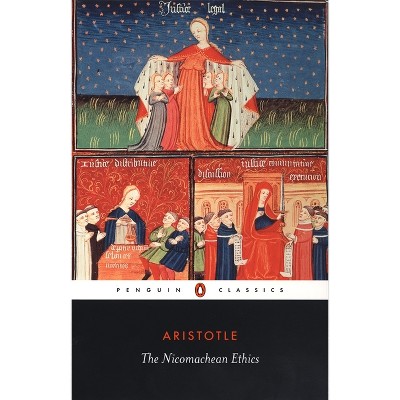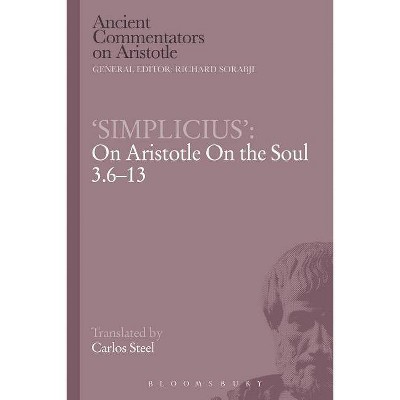Sponsored

Poetics - (Penguin Classics) by Aristotle (Paperback)
$12.12 was $13.00
New lower price save $0.88 (7% reduction)
In Stock
Eligible for registries and wish lists
Sponsored
About this item
Highlights
- Essential reading for all students of Greek theatre and literature, and equally stimulating for anyone interested in literature In the Poetics, his near-contemporary account of classical Greek tragedy, Aristotle examine the dramatic elements of plot, character, language and spectacle that combine to produce pity and fear in the audience, and asks why we derive pleasure from this apparently painful process.
- About the Author: Aristotle was born in 384BC.
- 144 Pages
- Poetry, Ancient & Classical
- Series Name: Penguin Classics
Description
About the Book
In one of the most perceptive and influential works of criticism in Western literary history, third century B.C. Greek philosopher Aristotle examines the literature of his time, describing the origins of poetry as an imitative art and drawing attention to the distinctions between comedy and tragedy. Aristotle helped establish the foundations of Western philosophy, and his influence is evident in philosophical thought today.Book Synopsis
Essential reading for all students of Greek theatre and literature, and equally stimulating for anyone interested in literature In the Poetics, his near-contemporary account of classical Greek tragedy, Aristotle examine the dramatic elements of plot, character, language and spectacle that combine to produce pity and fear in the audience, and asks why we derive pleasure from this apparently painful process. Taking examples from the plays of Aeschylus, Sophocles and Euripides, the Poetics introduced into literary criticism such central concepts as mimesis ('imitation'), hamartia ('error') and katharsis, which have informed serious thinking about drama ever since. Aristotle explains how the most effective tragedies rely on complication and resolution, recognition and reversals, while centring on chaaracerts of heroic stature, idealised yet true to life. One of the most perceptive and influential works of criticism in Western literary history, the Poetics has informed serious thinking about drama ever since. Malcolm Heath's lucid translation makes the Poetics fully accessible to the modern reader. In this edition it is accompanied by an extended introduction, which discusses the key concepts in detail, and includes suggestions for further reading. For more than seventy years, Penguin has been the leading publisher of classic literature in the English-speaking world. With more than 1,700 titles, Penguin Classics represents a global bookshelf of the best works throughout history and across genres and disciplines. Readers trust the series to provide authoritative texts enhanced by introductions and notes by distinguished scholars and contemporary authors, as well as up-to-date translations by award-winning translators.From the Back Cover
Aristotle's Poetics is one of the most powerful, perceptive and influential works of criticism in Western literary history. A penetrating, near-contemporary account of Greek tragedy, it demonstrates how the elements of plot, character and spectacle combine to produce 'pity and fear' - and why we derive pleasure from this apparently painful process. It introduces the crucial concepts of mimesis ('imitation'), hamartia ('error') and katharsis, which have informed serious thinking about drama ever since. It examines the mythological heroes, idealized yet true to life, whom Aeschylus, Sophocles and Euripides brought on to the stage. And it explains how the most effective plays rely on complication and resolution, recognitions and reversals. Essential reading for all students of Greek literature and of the many Renaissance and post-Renaissance writers who consciously adopted Aristotle as a model, the Poetics is equally stimulating for anyone interested in theatre today.About the Author
Aristotle was born in 384BC. For twenty years he studied at Athens at the Academy of Plato, on whose death in 347 he left, and some time later became tutor to Alexander the Great. On Alexander's succession to the throne of Macedonia in 336, Aristotle returned to Athens and established his school and research institute, the Lyceum. After Alexander's death he was driven out of Athens and fled to Chalcis in Euboea where he died in 322. His writings profoundly affected the whole course of ancient and medieval philosophy. Malcolm Heath has been Reader in Greek Language and Literature at Leeds University since 1991.Dimensions (Overall): 7.92 Inches (H) x 5.04 Inches (W) x .36 Inches (D)
Weight: .27 Pounds
Suggested Age: 22 Years and Up
Number of Pages: 144
Genre: Poetry
Sub-Genre: Ancient & Classical
Series Title: Penguin Classics
Publisher: Penguin Classics
Format: Paperback
Author: Aristotle
Language: English
Street Date: March 1, 1997
TCIN: 76921120
UPC: 9780140446364
Item Number (DPCI): 247-01-1302
Origin: Made in the USA or Imported
If the item details aren’t accurate or complete, we want to know about it.
Shipping details
Estimated ship dimensions: 0.36 inches length x 5.04 inches width x 7.92 inches height
Estimated ship weight: 0.27 pounds
We regret that this item cannot be shipped to PO Boxes.
This item cannot be shipped to the following locations: American Samoa (see also separate entry under AS), Guam (see also separate entry under GU), Northern Mariana Islands, Puerto Rico (see also separate entry under PR), United States Minor Outlying Islands, Virgin Islands, U.S., APO/FPO
Return details
This item can be returned to any Target store or Target.com.
This item must be returned within 90 days of the date it was purchased in store, shipped, delivered by a Shipt shopper, or made ready for pickup.
See the return policy for complete information.
Frequently bought together

$15.68
Save $5 when you spend $25 on select books
4.6 out of 5 stars with 242 ratings

